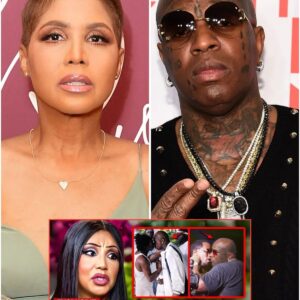The Music Industry: The Unseen Pressure and Responsibility on Celebrities

The music industry, with its glitz and glamour, often presents a façade that belies the darker realities faced by artists. Coolio’s candid interview sheds light on the challenges and pressures that come with fame, particularly for those over the age of 35 who have spent years in the industry.
Coolio, a prominent figure in the 90s music scene, touches on a myriad of issues in his discussion, from the potential risks of heart disease and stroke due to lifestyle choices to the shadowy pressures exerted by what some might call the ‘elite’ or the ‘illuminati.’ These references to elite societies or conspiracies highlight the paranoia and fear that can accompany success in the industry. Coolio acknowledges that while he never received a direct invitation to join such groups, he experienced indirect pressures and bizarre encounters that left him questioning the motives of those around him.

The rapper recounts instances where he felt targeted for his outspokenness and desire to help others through his platform. He speaks of strange occurrences, such as unwarranted legal troubles and feeling watched, which he interpreted as warnings to silence his voice. The fear for his family’s safety ultimately led him to retract some of his statements and reduce his public outcry.
A significant portion of Coolio’s concern revolves around the impact of his words and music on his audience. He emphasizes the dual responsibility of artists to entertain and educate. In his view, having a large audience obligates artists to provide valuable insights and not just superficial enjoyment. This sense of duty is compounded by the influence music has on young listeners, shaping their perceptions and actions.

Coolio’s reflection on the current state of the music industry paints a bleak picture. He suggests that the balance between good and evil is skewed, with negative influences predominating. This imbalance is reflected in the content of modern music, which he believes often fails to offer the guidance or positive messages that listeners need. He criticizes the prevailing attitude among some artists who dismiss the impact of their words, arguing that this is a dereliction of their responsibility to their audience.
This sentiment is echoed in his critique of popular culture’s influence on youth. He believes that artists like Eminem, 50 Cent, Kendrick Lamar, and Ice Cube hold significant sway over their fans and therefore have a duty to impart wisdom alongside entertainment. The failure to do so, according to Coolio, contributes to the moral and ethical decline he perceives in society.

In conclusion, Coolio’s insights reveal the complex and often perilous journey of navigating the music industry. Beyond the allure of fame and fortune lies a landscape fraught with unseen pressures and ethical dilemmas. His experiences underscore the importance of integrity and responsibility for public figures, especially those with the power to influence millions. As Coolio’s narrative demonstrates, the true measure of an artist’s success may well be their ability to balance the demands of fame with a commitment to positively impacting their audience.
News
Whoopi Goldberg Ejected from “The View” After Defending Megan Rapinoe
In a dramatic and unexpected development, Whoopi Goldberg, a co-host of “The View,” was abruptly removed from the show after vocally supporting Megan Rapinoe during a heated discussion. Goldberg, renowned for her candid and forthright commentary, passionately defended Rapinoe amid…
Riley Gaines Awarded “Woman of the Year” Over Megan Rapinoe
Riley Gaines Awarded “Woman of the Year”: A Controversial Decision In a surprising turn of events, Riley Gaines, a distinguished collegiate swimmer, has been awarded the prestigious “Woman of the Year” title, surpassing the well-known soccer star Megan Rapinoe. This…
WNBA Opens Investigation: Star Caitlin Clark Was “Played Unfairly”?
WNBA Opens Investigation: Star Caitlin Clark Was “Played Unfairly”? In a surprising and significant move, the Women’s National Basketball Association (WNBA) has announced an official investigation into claims that star player Caitlin Clark was “played unfairly” in recent games. This…
Surprise! NCAA strips Lia Thomas of her medal and gives it to Riley Gaines?
In a groundbreaking and decisive move, the National Collegiate Athletic Association (NCAA) announced the complete transfer of all medals awarded to Lia Thomas to fellow swimmer Riley Gaines. This unprecedented decision marks a significant shift in the ongoing discourse surrounding…
Toni Braxton EXPOSES Why She Could Never Marry Birdman
Toni Braxton Calls it Quits: Birdman’s Alleged Secret Life Leads to Breakup Toni Braxton fans were shocked earlier this year when news broke of her split from rapper Birdman. While rumors of a fairytale wedding had swirled for years, Braxton…
Diddy Is FINISHED After SHOCKING Videos Expose Him With Justin Bieber and Jaden Smith
Diddy Hit With Shocking Allegations: Mentor or Manipulator? Sean Combs, better known as Diddy, is no stranger to controversy. However, recent rumors swirling around his past mentorship of Justin Bieber and Jaden Smith have taken things to a new level….
End of content
No more pages to load











